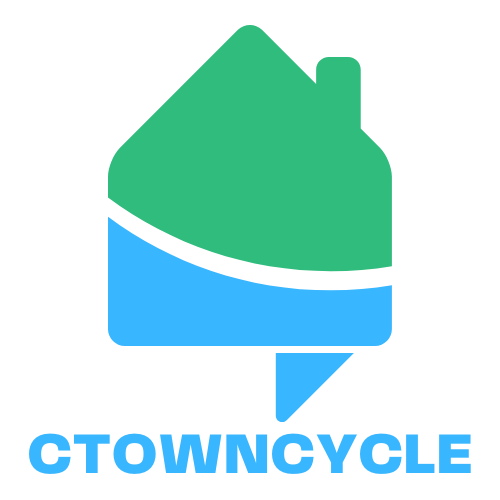Table of Contents
ToggleIn the fast-paced world of real estate, navigating the sales funnel can feel like trying to find a needle in a haystack—if the haystack were made of open houses and virtual tours. Understanding this funnel isn’t just a nice-to-have; it’s essential for turning curious browsers into eager buyers.
Understanding the Real Estate Sales Funnel
Navigating the sales funnel in real estate requires a solid grasp of its structure. This knowledge aids in transforming casual lookers into serious buyers.
What Is a Sales Funnel?
A sales funnel represents the journey potential buyers undertake from first contact to final purchase. It consists of several stages, including awareness, interest, consideration, and decision. Awareness involves attracting prospective clients through marketing strategies. Interest captures prospects’ attention with engaging content and property showcases. Consideration encourages evaluation of various options, while decision leads to the closing of a sale. Each stage plays a pivotal role in guiding clients toward making informed decisions.
Why a Sales Funnel Matters in Real Estate
A sales funnel significantly impacts success in the real estate market. It provides a framework that streamlines lead generation and conversion processes. By understanding each stage, agents can tailor their approach to meet client needs effectively. This strategy boosts engagement and enhances overall customer experience. Additionally, data-driven insights gleaned from the funnel enable agents to identify trends and optimize marketing efforts. Overall, harnessing this tool ultimately results in increased conversions and higher sales revenue.
Stages of the Real Estate Sales Funnel
Understanding the stages of the real estate sales funnel is vital for agents aiming to convert leads effectively. This funnel consists of several key stages, each requiring tailored strategies.
Awareness Stage
In the awareness stage, potential buyers discover properties through various channels. Common methods include social media advertising, online listings, and open house events. Agents must create compelling content that captures attention and encourages inquiries. Visual appeal plays a crucial role, as engaging images and videos can significantly enhance interest. Targeted marketing strategies, such as local SEO, increase visibility among prospects. Building an online presence helps in introducing agents and properties to a wider audience, fostering initial connections.
Consideration Stage
During the consideration stage, prospects evaluate options based on their needs and preferences. Buyers often compare multiple listings, focusing on features like location, price, and amenities. Agents should provide detailed information, including market analyses and virtual tours, to facilitate informed decision-making. Addressing specific client concerns enhances trust and encourages deeper engagement. Personalized communication through email follow-ups or consultations can nurture leads at this stage. Establishing expertise and responsiveness strengthens relationships that guide clients along the funnel.
Decision Stage
The decision stage marks the final phase where potential buyers make a purchase choice. Clients seek reassurance that their investment aligns with their goals and financial situation. Effective negotiation tactics and transparent communication can ease their concerns. Providing testimonials or case studies assists in illustrating past successes and building credibility. Agents must remain accessible, ready to answer questions and finalize contracts. A smooth transaction process ensures positive experiences that encourage referrals and repeat business.
Strategies for Each Funnel Stage
Navigating the real estate sales funnel requires tailored strategies for each stage. Focusing on effective techniques boosts engagement and nurtures leads.
Effective Marketing Techniques
Effective marketing begins with understanding buyer psychology. Agents must leverage social media and targeted advertisements to generate awareness. Creating high-quality content showcases properties effectively, attracting prospects. Utilizing virtual tours and engaging videos captivates those in the consideration stage. Incorporating strong calls to action encourages prospects to take the next step. Tracking analytics allows agents to refine strategies based on what resonates most. Monitoring response rates helps in adjusting campaigns for maximum impact. Applying local SEO practices ensures properties appear in relevant searches. Each technique contributes to a robust marketing approach, enhancing visibility and interest.
Nurturing Leads in the Sales Funnel
Nurturing leads requires personalized communication. Building trust involves providing valuable information tailored to individual needs. Utilizing email drip campaigns keeps prospects engaged throughout their journey. Regular follow-ups with insights on market trends can reinforce relationships. Fostering connections through social media interactions offers additional support. Hosting webinars or informational sessions addresses common concerns and questions. Agents should segment leads based on behavior to personalize outreach effectively. Offering virtual consultations can further demonstrate commitment to client needs. Each strategy aims to maintain engagement, guiding potential buyers toward making informed decisions.
Tools and Technologies for Real Estate Agents
Real estate agents benefit from various tools and technologies that streamline processes and enhance efficiency. Some of these essential resources encompass customer relationship management (CRM) systems and analytics tools.
CRM Systems
CRM systems play a crucial role in managing client relationships. They store contact information, track interactions, and help agents maintain organized databases. A well-implemented CRM system can automate workflows, allowing agents to focus on building relationships. Popular CRM platforms include Salesforce, HubSpot, and Zoho. Each offers features like lead tracking, automated follow-ups, and integration with other marketing tools. By using CRM systems effectively, agents uphold client engagement throughout the sales funnel.
Analytics Tools
Analytics tools provide valuable insights into market trends and customer behavior. They enable agents to analyze data from various sources, including websites, social media, and email metrics. Google Analytics, for instance, helps agents gauge website performance and user behavior. These insights inform strategic decisions, enhancing marketing efforts and optimizing the sales process. Additionally, tools like Tableau and Power BI offer advanced visualization features, making complex data easier to interpret. Harnessing analytics empowers agents to refine strategies and improve conversion rates.
Mastering the real estate sales funnel is essential for agents aiming to convert leads into loyal clients. By understanding each stage and implementing tailored strategies, agents can significantly enhance their effectiveness.
Utilizing the right tools and technologies streamlines processes and fosters strong relationships with potential buyers. This approach not only boosts engagement but also ensures a smoother transaction experience.
As the real estate landscape continues to evolve, those who adapt their sales funnel strategies will find greater success in navigating the complexities of buyer behavior. Embracing these insights will empower agents to thrive in a competitive market.




